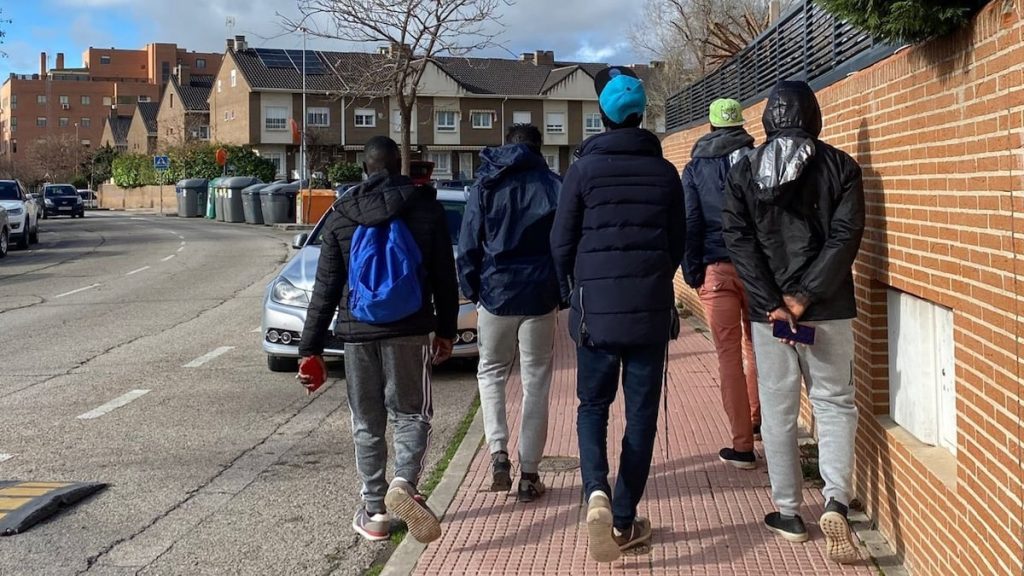Diallo Sissoko, a 21-year-old Malian young man who passed away last week, complained of intense chest pain in the days leading up to his death. His fellow immigrants in the tent where they slept at the reception center for immigrants in Alcalá de Henares, Madrid, witnessed his long agony without being able to do anything. After almost five hours of resuscitation attempts, Sissoko died in the hospital. He had arrived in El Hierro, Canary Islands, on August 27, fleeing the war in Mali. After spending time in Tenerife, he was transferred to the Alcalá de Henares camp. The immigrants and refugees living in this emergency facility can stay there for months as they wait for their situation to be resolved.
The death of Sissoko has brought to light the lack of adequate medical assistance in the camp. Many complaints have surfaced regarding the difficulty of getting an appointment at the infirmary and the inadequate supply of medication. Similar cases have occurred in other migrant reception centers in the Canary Islands and on the mainland, with tragic outcomes. Sissoko visited the hospital on October 15, where he was diagnosed with a lung infection but was not given antibiotics. His leg pain was treated with an anti-inflammatory cream. The contract with the company providing medical services at the camp had been terminated, leaving a gap where there were no doctors available to attend to the immigrants’ health concerns.
Former staff members of the medical team at the camp have reported on the deficiencies of the medical care provided. They highlighted the lack of proper hygiene and medical supplies, the sharing of nebulizers, and the treatment of public health cases such as tuberculosis, scabies, and COVID-19. The migrants often arrived at the camp with a variety of health issues due to their difficult journeys, and the medical care they received was described as precarious and basic. There were instances where the staff had to insist on sending patients to the hospital, as there was only one doctor available at the camp since August.
Concerns have been raised about the delayed medical attention and the apparent disregard for migrant health issues. The migrants often feel that their cases are dismissed, with appointments for medical consultations scheduled weeks in advance. The lack of medical personnel in the camp and the resistance to referring migrants to hospitals may have contributed to cases being inadequately treated or overlooked. The Ministry of Migration does not mandate the presence of a doctor at migrant reception centers, leaving it to the discretion of the NGOs managing the facilities. This lack of medical oversight has raised concerns among healthcare professionals regarding the quality of care provided to migrants.
The tragic death of Sissoko has prompted discussions among medical professionals about the need for continuous and specialized healthcare services for migrants arriving by sea. Ensuring proper medical attention upon arrival and throughout the reception period is essential to address health issues resulting from their journeys and to prevent them from worsening. The presence of interpreters and cultural mediators is also crucial for effective communication and understanding of the migrants’ health needs. The doctors and healthcare workers in the Yo sí atiendo platform emphasize the importance of investigating the circumstances surrounding migrant deaths in reception centers to prevent future tragedies.


